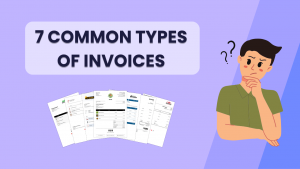As an entrepreneur, starting a business can be both exciting and nerve-wracking. While many entrepreneurs are focused on success and making a name for themselves in their industry, there are several common business mistakes that can hinder progress and cause setbacks.
If you want to start a business, read through the following list of business mistakes and go out of your way to avoid them. This article highlights 10 common business mistakes that entrepreneurs should avoid. These mistakes include failing to create a business plan, overestimating business skills, neglecting to conduct market research, underestimating the importance of cash flow, neglecting to build a strong online presence, failing to delegate tasks, neglecting to invest in marketing, failing to adapt to change, and not seeking help when needed. By avoiding these mistakes, entrepreneurs can increase their chances of success and achieve their business goals. Any one of them could sabotage your new business venture and turn it into a failure rather than a success.

Importance of avoiding common mistakes for entrepreneurs
Avoiding common mistakes is crucial for the success of entrepreneurs for several reasons:
Maximizing profits
Avoiding mistakes can help entrepreneurs maximize their profits by reducing unnecessary expenses and increasing sales.
Building a strong reputation
Making mistakes can damage an entrepreneur’s reputation, which can be difficult to recover from. Avoiding mistakes can help build a strong reputation, which is crucial for attracting and retaining customers.
Saving time and resources
Fixing mistakes can be time-consuming and costly, which can take away valuable time and resources that could be used for other important tasks. Avoiding mistakes can save time and resources, allowing entrepreneurs to focus on other aspects of their business.
Increasing customer satisfaction
Avoiding mistakes can help increase customer satisfaction by providing a better overall experience. Satisfied customers are more likely to become repeat customers and recommend the business to others.
Maintaining competitiveness: Avoiding mistakes can help entrepreneurs stay competitive in their industry. By avoiding common mistakes, entrepreneurs can stay ahead of their competitors and attract more customers.
In summary, avoiding common mistakes is essential for the success of entrepreneurs. By avoiding mistakes, entrepreneurs can maximize profits, build a strong reputation, save time and resources, increase customer satisfaction, and maintain competitiveness.
10 common mistake to avoid when doing business for entrepreneurs

1. Lack of market research
I see increasing numbers of people starting businesses without bothering to do any of this – and then being heartbroken when their new business, which they’ve invested so much time and money in, collapses.
Market research is a critical step that every entrepreneur should undertake before launching a business. Conducting market research helps entrepreneurs gain a better understanding of their potential customers and the competition they are likely to face in the market. This research involves gathering and analyzing data related to market size, customer preferences, buying habits, and other relevant factors that can impact the success of the business.
Without market research, entrepreneurs risk making assumptions and launching a business that may not meet the needs or wants of their target audience. This can result in wasted time, money, and resources, as well as potentially damaging the reputation of the business. Thorough market research helps entrepreneurs identify gaps in the market, assess the feasibility of their business idea, and make informed decisions about how to position and promote their product or service. Ultimately, conducting market research is essential for entrepreneurs to minimize risks, maximize opportunities, and increase the chances of launching a successful and profitable business.
2. Poor Financial Management
Poor financial management can have serious consequences for businesses, including cash flow problems, debt, and even bankruptcy. When entrepreneurs don’t effectively manage their finances, they risk running out of money, making it difficult to pay bills or invest in the growth of the business. This can damage the reputation of the business and make it difficult to attract new customers or secure funding. Additionally, poor financial management can lead to debt, which can accumulate quickly and result in high interest rates and late payment fees. This can make it even more difficult to get back on track and recover from financial difficulties. Finally, if financial problems are left unaddressed, the business may be forced to declare bankruptcy, which can have long-term consequences for the entrepreneur’s personal and professional life. For example, they may struggle to secure loans or credit in the future, and it can be challenging to start a new business or career after a bankruptcy. Overall, poor financial management can have severe consequences for entrepreneurs and their businesses, making it essential to prioritize financial management and seek expert advice when necessary.
Good financial management skills are essential for entrepreneurs to ensure the long-term success of their business. Financial management involves effectively managing financial resources, tracking income and expenses, creating and sticking to a budget, and making informed decisions about investments, loans, and other financial matters. Poor financial management can lead to cash flow problems, debt, and even bankruptcy.
3. Overexpansion
Overexpansion refers to the practice of expanding a business too quickly or aggressively without adequately considering the risks and challenges that come with growth. Overexpansion can be a serious mistake for businesses because it can stretch resources too thin, leading to financial problems, operational inefficiencies, and poor customer service. For example, a small retail business may decide to open several new locations within a short period, hoping to increase sales and profits quickly. However, if the business hasn’t developed strong systems and processes for managing multiple locations, it may struggle to maintain consistent quality and customer service across all locations. This can lead to dissatisfied customers, reduced sales, and increased costs. Overexpansion can also lead to a lack of focus, making it challenging for businesses to identify and prioritize opportunities that will drive sustainable growth.
Finally, overexpansion can be financially risky, as businesses may need to take on debt to finance growth, which can become a burden if growth doesn’t meet expectations or if economic conditions change unexpectedly. Overall, overexpansion can be a significant business mistake, and entrepreneurs should carefully consider the risks and challenges of growth before expanding their business
- Setting realistic goals: Entrepreneurs should set realistic goals for growth and expansion, based on their financial resources and market conditions.
- Testing new markets: Before expanding into new markets, entrepreneurs should conduct market research and test their products or services to ensure there is sufficient demand.
- Building a strong team: Entrepreneurs should build a strong team with diverse skills and experience to support growth and expansion.
- Prioritizing profitability: Entrepreneurs should prioritize profitability over revenue growth, ensuring that their business is financially sustainable before pursuing further expansion.
- Staying focused: Entrepreneurs should stay focused on their core competencies and avoid spreading themselves too thin by pursuing too many growth opportunities at once.
By following these strategies, entrepreneurs can achieve sustainable growth and avoid the risks associated with overexpansion, such as financial strain and decreased competitiveness.
4. Ignoring Customer Feedback
Customer feedback is critical for business success because it provides businesses with valuable insights into customer needs, preferences, and expectations. In today’s highly competitive business environment, understanding customer needs and delivering a high-quality customer experience is essential for building brand reputation, driving growth, and maintaining customer loyalty. By gathering feedback from customers, businesses can gain a deeper understanding of what they are doing well, and areas where they need to improve.
For example, if a business receives feedback that its customer service is slow or unresponsive, it can take corrective action to improve its customer service processes. This can help enhance the customer experience and increase customer satisfaction. Similarly, if a business receives feedback that its products or services are not meeting customer needs or expectations, it can make necessary changes to enhance the quality or develop new products that better meet customer needs.
In addition, customer feedback can help businesses identify opportunities for innovation and growth. By understanding customer preferences and pain points, businesses can develop new products or services that better meet customer needs, stay ahead of the competition, and drive growth over the long term.
Overall, customer feedback is an essential tool for businesses to improve their products and services, build stronger customer relationships, and enhance their brand reputation. By actively seeking and acting on customer feedback, businesses can position themselves for long-term success and growth.
Ignoring customer feedback can have significant consequences for businesses. Here are some examples of the potential consequences of not listening to customer feedback:
- Decreased customer satisfaction: When businesses ignore customer feedback, they risk losing touch with their customers’ needs and expectations. This can lead to decreased customer satisfaction and potentially losing customers to competitors who are more responsive to customer needs.
- Decreased sales and revenue: If customers are dissatisfied with a product or service, they are less likely to purchase it in the future. This can lead to decreased sales and revenue for the business.
- Damaged brand reputation: When customers have negative experiences with a business, they are likely to share their experiences with others. This can lead to a damaged brand reputation, which can be challenging to repair.
- Missed opportunities for innovation: By ignoring customer feedback, businesses may miss opportunities for innovation and product development. This can put them at a disadvantage compared to competitors who are more responsive to customer needs and preferences.
- Reduced employee morale: When employees see that customer feedback is ignored or not taken seriously, it can negatively impact their morale and motivation. This can lead to reduced productivity and potentially increased turnover.
5. Poor hiring decisions
Making poor hiring decisions can have significant consequences for businesses, including:
- Decreased productivity: Hiring the wrong person can lead to decreased productivity, as they may not have the necessary skills or experience to perform their job effectively.
- Increased costs: Hiring the wrong person can be expensive, as it may require additional training or hiring a replacement if the employee doesn’t work out.
- Damaged company culture: Hiring someone who is a poor fit for the company culture can lead to tension and conflict within the team, which can negatively impact morale and productivity.
- Decreased customer satisfaction: Hiring the wrong person in a customer-facing role can lead to decreased customer satisfaction, as they may not have the necessary skills or personality traits to provide excellent customer service.
- Legal issues: Hiring someone who is not qualified or who has a history of legal issues can result in legal problems for the company.
Overall, poor hiring decisions can have significant consequences for businesses, including decreased productivity, increased costs, damaged company culture, decreased customer satisfaction, and potential legal issues.
6. Lack of Marketing Strategy
Following the common advice “Build it and they will come” is another serious business mistake. Come where? Why? Or even when? No one will know without some effective marketing.
Entrepreneurs need to have a marketing strategy to effectively promote their products or services and reach their target audience. A marketing strategy helps a business identify and understand its target market, differentiate itself from competitors, and communicate its value proposition to potential customers. It outlines the tactics and techniques that a business will use to achieve its marketing goals and drive sales. Without a marketing strategy, entrepreneurs may struggle to attract customers and generate revenue, which can lead to business failure. A well-defined marketing strategy can help entrepreneurs stay focused on their goals and achieve long-term success by building brand awareness, generating leads, and converting those leads into loyal customers.
Not having a marketing strategy can have several negative consequences for entrepreneurs, including:
- Inconsistent messaging: Without a clear marketing strategy, businesses may struggle to communicate a consistent message to their target audience.
- Limited reach: A lack of a marketing strategy may lead to limited reach to the target audience and may fail to attract new customers.
- Missed opportunities: Not having a marketing strategy can lead to missed opportunities to engage with customers and promote the business.
- Wasted resources: Without a marketing strategy, businesses may waste resources on ineffective marketing tactics that do not contribute to achieving their goals.
- Decreased revenue: Ultimately, not having a marketing strategy can lead to decreased revenue and business failure.
Examples of these consequences include businesses that struggle to grow their customer base, lose existing customers, or fail to generate enough revenue to cover their expenses.
7. Failing to Adapt to Change
Entrepreneurship is a dynamic and unpredictable field that requires individuals to be adaptable and willing to change. Entrepreneurs face a constantly evolving business landscape, and the ability to adapt to new challenges and opportunities is critical for success. In today’s fast-paced business environment, the ability to pivot and make changes quickly is essential to stay ahead of the competition and meet the evolving needs of customers. Adaptable entrepreneurs are better equipped to respond to changes in the market, customer preferences, and technology, which can help them to seize new opportunities and avoid the risk of business failure.
In addition, entrepreneurs who are willing to change can also improve their own skills and grow as leaders. By embracing new ideas and feedback, entrepreneurs can identify areas for improvement and make changes that enhance their business’s performance. This includes the ability to pivot business models, change marketing strategies, and adjust pricing or product offerings in response to customer needs. Being adaptable also helps entrepreneurs to be more resilient and better equipped to handle unexpected setbacks or challenges, which is crucial in the face of uncertain economic and market conditions.
The consequences of failing to adapt to change can be significant for entrepreneurs. These consequences can include:
- Missed opportunities: Entrepreneurs who are resistant to change may miss out on new opportunities that arise in the market, such as emerging technologies or shifting consumer preferences.
- Decreased competitiveness: Failure to adapt can also result in decreased competitiveness in the market, as other businesses embrace new trends or technologies to gain an advantage.
- Loss of customers: If entrepreneurs do not adapt to changes in customer preferences or needs, they may lose customers to competitors who can better meet their evolving needs.
- Decreased revenue: Ultimately, failing to adapt can lead to decreased revenue and even business failure, as the business becomes less relevant in the market.
For example, Kodak failed to adapt to the shift towards digital photography and ultimately filed for bankruptcy. Another example is Blockbuster, which failed to embrace the shift towards streaming services and ultimately went out of business.
8. Not Having a Clear Value Proposition
Entrepreneurs need to have a clear value proposition because it is the foundation of their business strategy. A value proposition defines the unique value that a business offers to customers, and how it solves their needs or problems better than competitors. It is a concise statement that communicates the brand’s identity and the benefits that customers can expect from using its products or services.
Having a clear value proposition is crucial for entrepreneurs because it helps them differentiate their business in a crowded marketplace, attract and retain customers, and drive growth. A clear value proposition also enables entrepreneurs to align their business strategy with customer needs and preferences, enhancing their competitiveness and increasing customer loyalty.
Without a clear value proposition, entrepreneurs may struggle to communicate their brand’s identity effectively, leading to poor differentiation from competitors, reduced market share, and lost revenue. Customers may not understand the unique value that a business offers, resulting in lower engagement and customer loyalty.
Therefore, entrepreneurs need to invest time and effort in developing a clear value proposition that defines their unique value, resonates with their target audience, and differentiates them from competitors. A well-defined value proposition is the key to building a strong brand identity, establishing customer trust, and driving long-term business success.
The consequences of not having a clear value proposition can include:
- Poor differentiation: Without a clear value proposition, businesses may struggle to differentiate themselves from competitors, which can result in lost sales and reduced market share.
- Inconsistent branding: A lack of clarity in the value proposition can result in inconsistent branding, confusing customers and diminishing the brand’s overall impact.
- Lack of customer engagement: Without a clear value proposition, customers may struggle to understand the business’s value, resulting in a lack of engagement and reduced customer loyalty.
Examples of companies that failed to communicate a clear value proposition include Sears, which lost market share to online retailers due to its lack of differentiation, and JC Penney, which struggled with its rebranding efforts after changing its pricing strategy without clearly communicating its value proposition.
9. Lack of Focus
Focus is a key factor in achieving business success. It involves setting clear goals and prioritizing tasks to achieve those goals effectively. Focusing on specific objectives helps entrepreneurs to stay motivated and make informed decisions that move the business forward. By concentrating their efforts, business owners can allocate resources to the most critical areas, ensuring that they achieve maximum impact.
Having a clear focus also enables businesses to differentiate themselves from competitors. By honing in on a specific niche, companies can establish their brand, build a loyal customer base, and create a unique value proposition that resonates with their target audience. This, in turn, drives customer loyalty, word-of-mouth referrals, and sustainable growth.
Without focus, businesses can easily become distracted and lose sight of their goals. This can lead to a lack of direction, missed opportunities, and inefficiencies in resource allocation. Ultimately, businesses that lack focus may struggle to establish themselves in the market and may fail to achieve long-term success.
10. Ignoring the Competition
Ignoring the competition is another potentially fatal business mistake. Simple question #1: If you’re selling your thingamabobs for $10.00 apiece and Vera down the street is selling her thingamabobs for $6.00 apiece, how many thingamabobs are you going to sell?
And what if Vera’s thingamabobs look/smell/feel/taste better than yours? Always keep tabs on the competition that matters.
Another aspect of competition you need to understand is market saturation. The pie is only so big, so to speak, for every product or service. So, for instance, if you want to open a dog grooming business, there may not be any “room” left in your local area to do so because of the number of dog grooming businesses that already exist; the market is already “saturated” with this kind of business.
Tips to avoid mistake for entrepreneurs and make better business decisions

Improve financial management skills
By practicing good financial management skills and seeking expert advice when necessary, entrepreneurs can ensure their business is financially stable and well-positioned for future growth.
- Entrepreneurs should start by creating a comprehensive budget that includes all expenses and revenue streams
- They should track their income and expenses regularly to gain a clear understanding of their cash flow and identify areas where they can reduce expenses or increase revenue.
- Also consider seeking advice from a financial advisor or accountant to help them make informed decisions about investments, loans, and taxes.
- Finally, it’s important to regularly review and adjust the financial plan as the business grows and evolves.
Avoid overexpansion
Entrepreneurs can avoid overexpansion and focus on growth in a more sustainable way by:
- Setting realistic goals: Entrepreneurs should set realistic goals for growth and expansion, based on their financial resources and market conditions.
- Testing new markets: Before expanding into new markets, entrepreneurs should conduct market research and test their products or services to ensure there is sufficient demand.
- Building a strong team: Entrepreneurs should build a strong team with diverse skills and experience to support growth and expansion.
- Prioritizing profitability: Entrepreneurs should prioritize profitability over revenue growth, ensuring that their business is financially sustainable before pursuing further expansion.
- Staying focused: Entrepreneurs should stay focused on their core competencies and avoid spreading themselves too thin by pursuing too many growth opportunities at once.
By following these strategies, entrepreneurs can achieve sustainable growth and avoid the risks associated with overexpansion, such as financial strain and decreased competitiveness.
Collect and act on customer feedback
Here are some tips on how to collect and act on customer feedback:
- Use surveys and feedback forms: Create surveys and feedback forms that are easy for customers to complete and provide opportunities for customers to share specific feedback and suggestions.
- Monitor online reviews and social media: Keep an eye on online reviews and social media comments to see what customers are saying about your business, products, and services.
- Encourage open communication: Encourage customers to share feedback and suggestions through email, phone, or in-person conversations. Make it clear that you value their input and are committed to improving their experience.
- Act on feedback: Once you have collected feedback, act on it promptly. Address any issues or concerns that customers have raised, and use their feedback to make improvements to your products or services.
- Follow up with customers: Follow up with customers after making changes based on their feedback to let them know how their input was valuable and how it has helped improve the overall customer experience.
By collecting and acting on customer feedback, businesses can improve their products and services, increase customer satisfaction, and build stronger customer relationships over the long term.
Making better hiring decisions
By following these tips, businesses can increase their chances of making better hiring decisions and hiring employees who are a good fit for the job and the company culture.
- Define the job requirements: Clearly define the skills, experience, and personality traits required for the job to ensure that you hire the right person for the position.
- Use multiple recruitment sources: Use multiple recruitment sources, such as job boards, social media, and employee referrals, to find a diverse pool of qualified candidates.
- Conduct thorough interviews: Use behavioral-based interview questions to assess a candidate’s skills, experience, and fit for the role and the company culture.
- Check references: Contact the candidate’s references to verify their skills and experience and to get insight into their work style and personality.
- Use assessments: Use assessments, such as personality tests or skills tests, to evaluate a candidate’s fit for the job and to identify any potential red flags.
Developing your business marketing strategy
My best tip? Market your business before you open it. There’s no rule that says you have to wait until your physical or virtual doors are actually open.
To develop a marketing strategy, entrepreneurs should:
- Identify their target audience: Determine the characteristics of the ideal customer, such as age, gender, income, location, and interests.
- Set clear marketing goals: Define what the business aims to achieve through its marketing efforts, such as generating leads or increasing brand awareness.
- Research the competition: Understand what the competition is doing and how the business can differentiate itself from them.
- Develop a budget: Determine how much the business can afford to spend on marketing and allocate the budget accordingly.
- Choose the right marketing tactics: Select the marketing tactics that will reach the target audience most effectively, such as social media marketing, email marketing, or content marketing.
- Measure and adjust: Continuously monitor and measure the effectiveness of the marketing strategy and adjust as needed.
By following these tips, entrepreneurs can develop a well-defined marketing strategy that helps them achieve their goals and ultimately drive business success.
More adaptable and open to change
To be more adaptable and open to change, entrepreneurs can take several steps, including:
- Stay informed: Keeping up with industry trends and emerging technologies can help entrepreneurs identify opportunities for growth and change.
- Embrace feedback: Listening to feedback from customers and employees can help entrepreneurs identify areas for improvement and make necessary changes.
- Foster a culture of innovation: Encouraging employees to share new ideas and take risks can help entrepreneurs stay ahead of the curve and remain relevant in the market.
- Be willing to pivot: Entrepreneurs should be willing to change their business model, marketing strategies, or product offerings in response to changing market conditions or customer needs.
- Continuously learn: Continuously learning new skills and knowledge can help entrepreneurs stay relevant and adaptable in a rapidly changing business environment.
By taking these steps, entrepreneurs can cultivate a mindset of adaptability and openness to change, which can help them stay competitive and achieve long-term success.
Develop a clear value proposition
Some tips for business owners to develop a clear value proposition:
- Define your target audience: Identify your ideal customer and understand their needs, pain points, and preferences.
- Analyze your competition: Research your competitors to understand their strengths, weaknesses, and how they position themselves in the market.
- Identify your unique selling point: Determine what sets you apart from your competitors and how you can provide value to your customers that others cannot.
- Craft a compelling message: Use clear and concise language to communicate your unique value proposition to your target audience. Make sure that your message resonates with your customer’s needs and priorities.
- Test your value proposition: Test your value proposition with your target audience to gather feedback and refine your message based on their responses.
- Incorporate your value proposition into all marketing efforts: Ensure that your value proposition is consistently communicated across all marketing channels, including your website, social media, and advertising.
- Continuously evaluate and refine your value proposition: Regularly assess the effectiveness of your value proposition and make changes as necessary to better meet the evolving needs of your customers.
By following these tips, business owners can develop a clear value proposition that differentiates them from competitors, resonates with their target audience, and drives growth and success.
Stay focused and avoid distractions
How entrepreneurs can stay focused and avoid distractions:
- Set clear goals: Define what you want to achieve and create a roadmap to guide your efforts. Having a clear sense of purpose will help you stay motivated and focused on the tasks that matter most.
- Prioritize tasks: Identify the most important tasks and focus on completing them first. This will help you avoid getting sidetracked by less critical activities.
- Avoid multitasking: Multitasking can be tempting, but it often leads to decreased productivity and increased stress. Instead, focus on one task at a time and give it your full attention.
- Eliminate distractions: Remove anything that may distract you from your work. This could include closing unnecessary tabs on your computer, turning off notifications, or working in a quiet space.
- Take breaks: Taking regular breaks can help you stay energized and focused. Consider taking short breaks every hour or so to recharge your batteries.
- Practice self-discipline: Staying focused requires discipline and self-control. Set boundaries for yourself, such as limiting your time on social media or avoiding personal tasks during work hours.
- Get support: Find a mentor or accountability partner who can help you stay focused and provide guidance when needed. They can also hold you accountable for achieving your goals.
Who Doesn’t Want to Succeed?

I’ve yet to meet a person who wants to start a business that’s going to fail.
If starting a business is in your future, understand that starting a business is a process, not an event. If you take the time to do the thinking and the research and avoid the business mistakes discussed above, you’ll hugely increase the likelihood of your new business succeeding.







